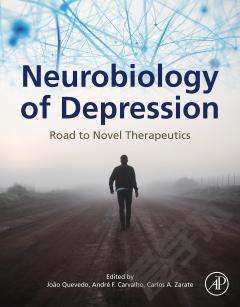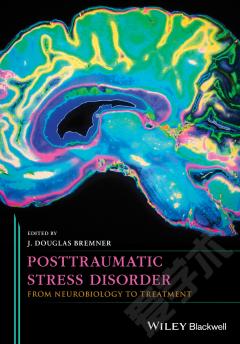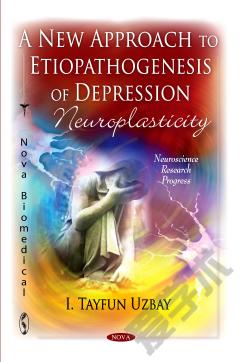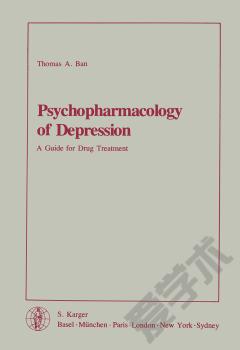Neurobiology of Depression —— Road to Novel Therapeutics
----- 抑郁症的神经生物学:新型治疗学之路
Neurobiology of Depression: Road to Novel Therapeutics synthesizes the basic neurobiology of major depressive disorder with discussions on the most recent advances in research, including the interacting pathways implicated in the pathophysiology of MDD, omics technologies, genetic approaches, and the development of novel optogenetic approaches that are changing research perspectives and revolutionizing research into depression. These basic foundational understandings on the neurobiology underlying the disorder, along with a comprehensive summary of the most recent advances in research are combined in this book to aid advanced students and researchers in their understanding of MDD. Depression is one of the most common mental-health disorders caused by a variety of genetic, biological, environmental and psychological factors. Major depressive disorder (MDD) is typically treated with first-line antidepressant agents that primarily target monoamine neurotransmission. However, only approximately one-third of patients with MDD achieve remission following a trial with such an antidepressant. Furthermore, MDD is a heterogeneous phenotype, and new frameworks, such as the NIMH Research Domain Criteria (RDoC) may provide a more accurate, biologically based comprehension of the symptomatic heterogeneity of this devastating illness.Aids readers in understanding major depressive disorder in the context of NIMH Research Domain Criteria (RDoC) recommendationsCovers a range of existing and potential pharmacologic and non-pharmacologic treatment options, from lifestyle adjustments, to antidepressants and novel therapeuticsSynthesizes discussions on the cellular and molecular mechanisms underlying symptoms with the clinical aspects of depression
{{comment.content}}








 京公网安备 11010802027623号
京公网安备 11010802027623号